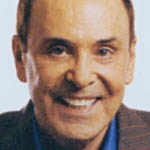Benjamin Eakeley
Broadway Swinger Vol. 2
Feinstein’s/54 Below, NYC, August 14, 2018
Reviewed by Alix Cohen for Cabaret Scenes

We have too few men in cabaret. I was unaware of Benjamin Eakeley, a handsome Broadway tenor, and looking forward to this show with high hopes. The club was packed. Despite being accustomed to a dark house and distance (theater), he connects with warmth and personality. Unfortunately, those qualities rarely find their way into songs ripe for them. The artist seems completely unaware of most of what he’s singing.
Volume 2 features songs of the 1930s when “songs were about ways to climb out of The Depression…with love, music, and government intervention.” The script is good, humorous, and illuminating; Eakeley delivers it well. Because of his lack of focus and attitude, however, he hasn’t a clue as to what the period was about and infrequently does justice to some terrific material. Not that this stops a mostly young, apparently familiar audience from swooning. The singer gets down on his knees mid-song to acknowledge one friend, calls out to another and, I kid you not, invites a third onstage to shoot a selfie.
On the positive side, a hushed “I Cover the Waterfront” (Johnny Green/Edward Heyman) fades into fog line by line as if exhaled in a nifty arrangement with muted coda. Ray Noble’s “The Very Thought of You” effectively illustrates a sweet band—“the croon was born to minimize radio distortion,” while “Lulu’s Back in Town” (Harry Warren/Al Dubin) resolutely swings. Eakeley’s almost perpetual happy is apt. Michael Sailors’ trumpet sheds its mute; Eric Poland’s cymbal work is skilled.
Speaking of Poland, this is a helluva drummer. Though he only gets to show off in Louis Prima’s “Sing, Sing, Sing” (shades of Buddy Rich), this musician adds texture and style to a show that too often takes generic paths. Eakeley plays clarinet during this selection and, for the first time, infectiously moves with rhythm.
Also earnest is (most of) a wistful, cottony version of “I’ll Be Seeing You” (Sammy Fain/Irving Kahal), which the performer grew to respect and understand from something said by his grandmother. Sailors’ trumpet is chiaroscuro. If only the vocalist didn’t feel it necessary to swell this touching number; he morphs from sympathetic pining to Pagliacci. “The Way You Look Tonight” (Jerome Kern/Dorothy Fields) begins all moonlight and chiffon, but then, also resorts to heavy emphasis.
Songs with cheery bounce work with tonight’s approach. “Love Walked In” (George and Ira Gershwin) shows off a natural ability to flirt. Long notes sail by just a bit sandy, almost palpable. “Tunes in the ’30s were upbeat and, dare I say, interchangeable,” Eakeley tells us exemplifying his premise with similar, genial arrangements of Benny Hill’s “The Glory of Love” and “It’s Only a Paper Moon” (Harold Arlen/Yip Harburg/Billy Rose). Sunny suits him, but the premise that successful Depression-era songs all ignored the times is flat-out incorrect.
Cole Porter’s “Love for Sale” arrives as a slick, quick-step ballad with a hoochie-coochie musical arrangement. Eakeley grins through a song that should overflow with resignation and/or defeat. “Ten Cents a Dance” (Richard Rodgers/Lorenz Hart) suffers the same treatment without even a change of pronoun to the rescue. Where’s the exhaustion, frustration, desperation; he’s almost winking! Instead of being appropriately muted, Sailors’ trumpet is bright; colored lights flash. Eakeley playfully tilts the microphone stand!
In direct opposition, Arlen/Harburg’s “If I Only Had a Brain” (The Scarecrow’s song from The Wizard of Oz) is interpreted as vocally monotone jazz which, though musically interesting, has nothing to do with the meaning of a single lyric. His encore, “Make Someone Happy” (Jule Styne/Betty Comden/Adolph Green) is a lilting soft shoe. We believe and enjoy it.
It’s frustrating to see an actor with talent who’s so oblivious. If only he had a good director!




